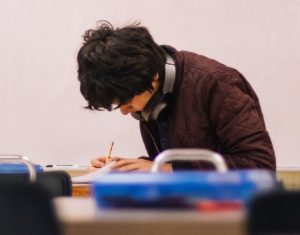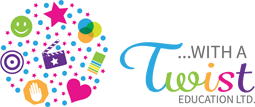 Grade 10 students in BC are getting ready for the end-of-semester literacy assessment and numeracy assessment. The literacy assessment is a mandatory standardized test required for graduation. It is designed to combine the literacy skills students have learned all the way from kindergarten up to grade 10, testing their abilities to analyze text and communicate ideas. How can your child go about preparing? This blog post will reveal some useful tips to help your student pass the grade 10 literacy assessment with flying colours.
Grade 10 students in BC are getting ready for the end-of-semester literacy assessment and numeracy assessment. The literacy assessment is a mandatory standardized test required for graduation. It is designed to combine the literacy skills students have learned all the way from kindergarten up to grade 10, testing their abilities to analyze text and communicate ideas. How can your child go about preparing? This blog post will reveal some useful tips to help your student pass the grade 10 literacy assessment with flying colours.
Read, Read, Read!
The grade 10 literacy assessment will test your student’s ability to consume a piece of media and effectively process the information contained within. What better way to practice than by reading? This doesn’t necessarily mean dusting off the old Charles Dickens novels—your student can build their proficiency by reading just about anything. Novels, magazines, news articles, and even social media posts are all prime reading material to use in preparation for the literacy assessment.
 While your student reads through their material of choice, encourage them to make meaningful notes on a scrap piece of paper. This can help them retain what they’re reading while giving them something to refer back to when it comes time to answer questions. The articles in the assessment could be over two pages long, so making notes surrounding a central theme can save time and prevent sifting through the article more often than necessary.
While your student reads through their material of choice, encourage them to make meaningful notes on a scrap piece of paper. This can help them retain what they’re reading while giving them something to refer back to when it comes time to answer questions. The articles in the assessment could be over two pages long, so making notes surrounding a central theme can save time and prevent sifting through the article more often than necessary.
If you start running out of quality material for your child to read through, check out our other blog posts for more practice. They’ll likely find some other useful tips to help them study while they do!
Get Engaged
Students will be required to come up with written responses throughout the BC literacy assessment. This means students will need to engage with the text and offer their thoughts on the meaning they’ve gathered. This can be a stumbling block if the material is perceived to be boring or if the student has little experience responding in such a way. Fortunately, you can help your child prepare for this section without having it feel like extra work.
Try asking your child their opinion about a current event you think they’ll find interesting or polarizing. When you engage them in conversation, they’re getting good practice formulating their thoughts and ideas into meaningful sentences that can be conveyed to a general audience. This will prove invaluable when it comes time for them to respond to the prompts provided within the literacy assessment.
Speak Your Mind
 A major component of the BC literacy assessment tests a student’s ability to provide written responses to a general theme or idea. One of the best ways to prepare for this section is to practice responding to a variety of prompts found in everyday life. With access to sites such as YouTube, Instagram, and other social media platforms, students can review and respond to just about anything in real time.
A major component of the BC literacy assessment tests a student’s ability to provide written responses to a general theme or idea. One of the best ways to prepare for this section is to practice responding to a variety of prompts found in everyday life. With access to sites such as YouTube, Instagram, and other social media platforms, students can review and respond to just about anything in real time.
The simple act of formulating an opinion in the comments section on a popular YouTube video can go a long way toward getting comfortable with written response. Maybe your child just watched a Netflix series they thought was amazing. Have them write a brief review detailing what made the series so great. Any bit of practice they can get will help when it comes time to articulate their thoughts in a more formal setting.
Don’t discount the value of social media here—the grade 10 literacy assessment frequently draws on resources pulled straight from sites like Facebook and Twitter. Having your child practice with a platform familiar to them will increase their willingness to comply and help them achieve better results on the exam.
Look at a Sample Literacy Assessment Test
To get a good idea of what to expect, students can visit the Government of BC’s website to view sample literacy assessments. There are only two examples available, but they perfectly outline the format for students to familiarize themselves with it. Since there are only two samples, students should refrain from trying them until they’ve prepared using the other methods outlined in this post. That way they can attempt the assessments when they feel more confident in their abilities and get a more accurate picture of how they’ll do on the real literacy assessment.
When working through the practice test, it’s incredibly important to read each question very carefully. Some questions will want only one answer, whereas others will require students to key in multiple responses. Reading a question incorrectly can result in marks lost, so encourage your student to take their time as they analyze each piece of the assessment.
Get Help Acing The Literacy Assessment
If your child feels like they could use more help preparing for the BC literacy assessment, feel free to contact us. Our twisted tutors can use a variety of proven methods to help your student develop the study techniques they need to succeed. We’d love to hear from you!
Want to stay updated with everything surrounding your child’s education? Head over to our Facebook page and check us out!
